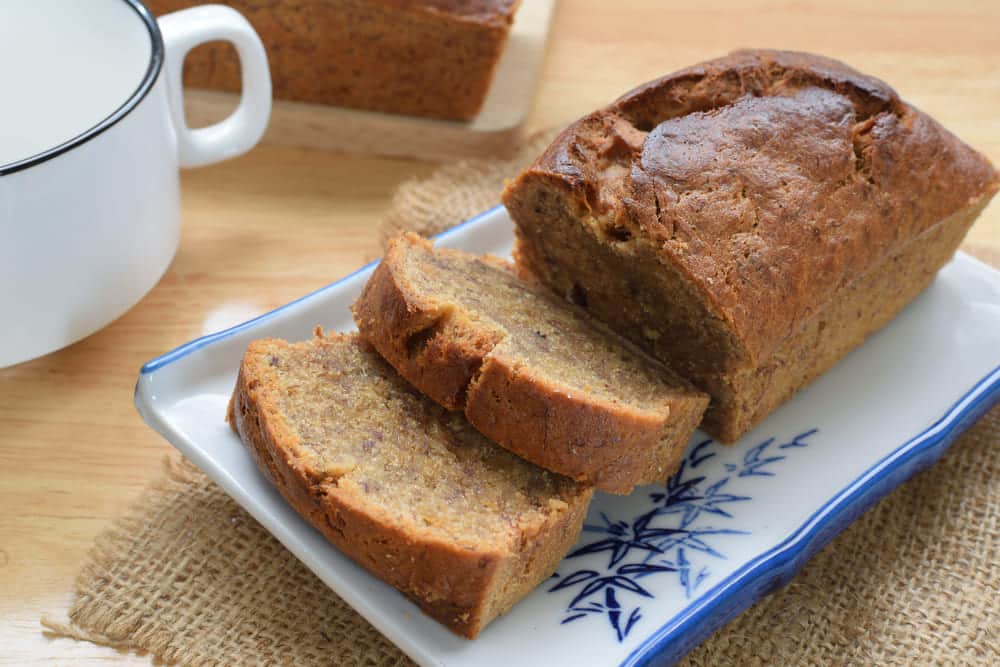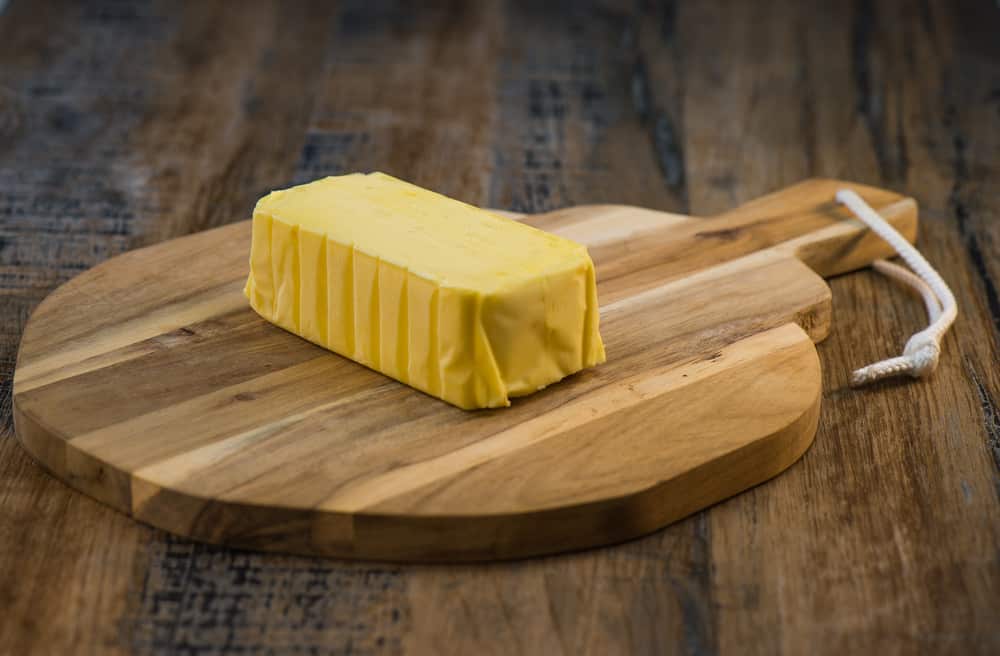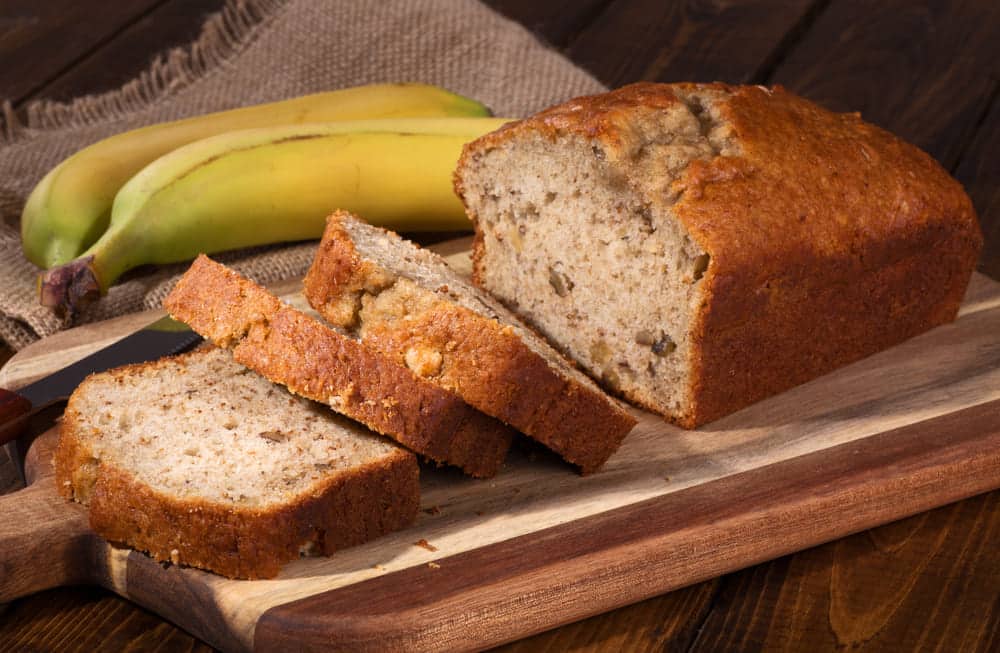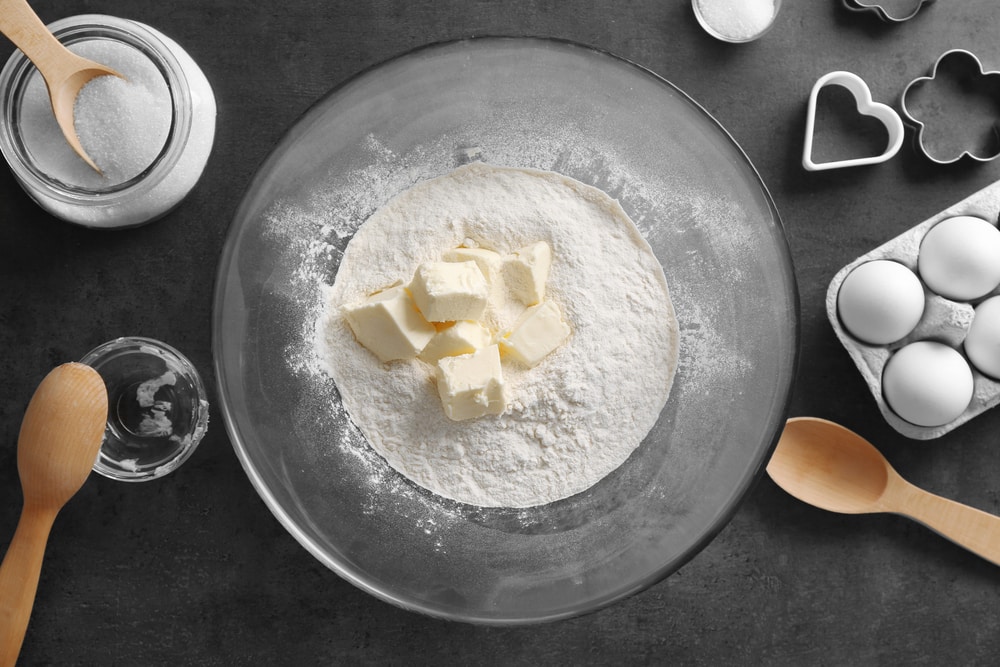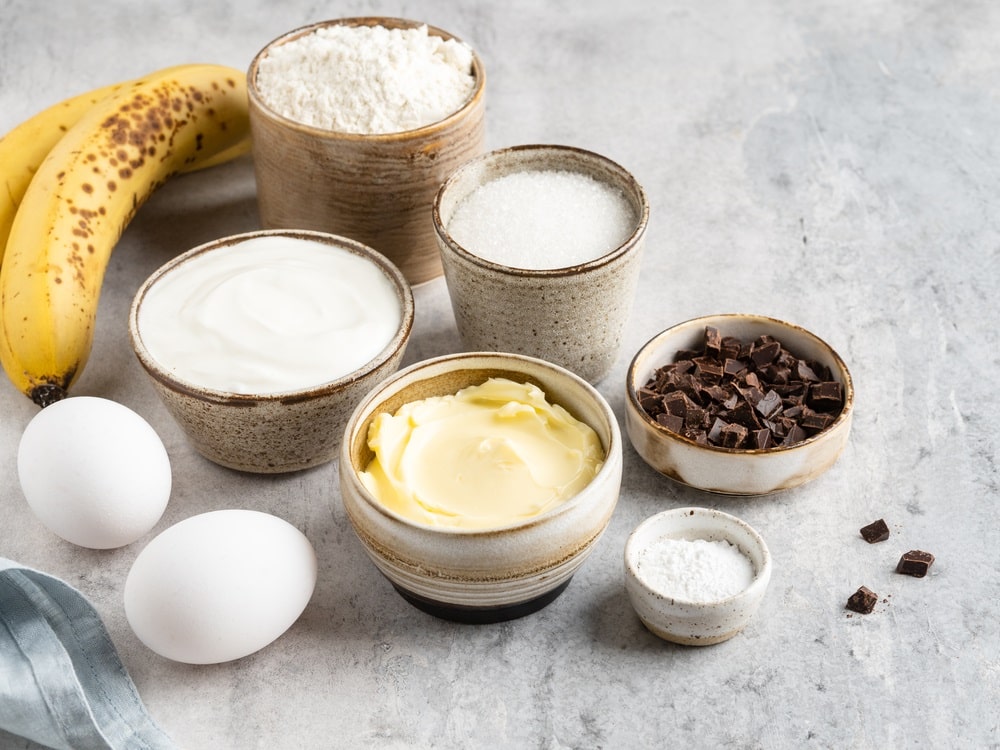
Bread plays a significant role in our daily lives. Consumption ranges from toast for breakfast to sandwiches for brunch, but the type of bread is forever changing depending on our preferences and habits.
Banana bread is undoubtedly one of the tastiest sweet treats, with a moist, soft texture that resembles a freshly baked cake. Sweet, irresistible, and quick and easy to bake, banana bread is a delicious favorite in most households.
When it comes to baking your own loaf, many end up wondering whether you should use salted or unsalted butter for banana bread.
Never be left in doubt again by going through our comprehensive comparison of these two key ingredients. Both work, but each offers distinct benefits and points to consider.
Salted Or Unsalted Butter For Banana Bread Comparison
| Salted Butter For Banana Bread | Unsalted Butter For Banana Bread | |
| Main Use | Create Density Within The Banana Bread Or Other Baked Goods | Create Lightness While Leaving Flavor Of Banana Bread And Other Baked Goods Unchanged |
| Benefits | Salted Butter Has Better Shelf Life – Easier To Ensure Pure Tasting Product | Unsalted Butter Grants Best Control Over Flavor And Doesn’t React Against Baking Soda Or Yeast In Other Baked Goods |
| Flavor | Fixed Flavor Granted To Banana Bread – Salt Quantity Needs To Be Adjusted To Compensate For Salted Butter | Complete Control Over Flavor, Freshest Flavor Possible As One Cannot Obtain Fresher Butter Than Unsalted Butter |
| Considerations | Have Salt Quantity Of Recipe To Guarantee Good Results When Baking Banana Bread | Unsalted Butter Spoils Quickly – Never Use When Spoiling Or Taste And Aroma Becomes Apparent In Banana Bread |
Salted Or Unsalted Butter For Banana Bread
Banana bread is so easy to bake that it is considered one of those dishes that can hardly be messed up no matter how wrong the cook may go.
Technically speaking, both types of butter, i.e., salted and unsalted butter, can be used to bake banana bread if the salt quantity is taken into account and measured properly.
Here is a look at how to factor in each type and always end up with a perfect loaf.
Salted Butter For Banana Bread
Salted butter can save a little time if you know what you’re doing. It also affects the color and density of banana bread ever-so-slightly. Here’s a breakdown of what you can expect when using salted butter for banana bread and how it compares to unsalted butter.
Main Use
Salt reacts with baking powder in such a manner that it makes banana bread and other baked goods come out denser than when using salted instead of unsalted butter.
Benefits
Using salty butter has a range of benefits. As the most common type of butter used, it is easily available in almost every household. Also, it prevents the dish from spoiling quickly. In this way, salted butter helps your banana bread last longer.
Salted butter itself can last up to six months in a refrigerator, which means you can stack it up and use it to make banana bread whenever you like, whereas unsalted butter generally spoils much quicker.
The fresher nature of salted butter also translates to a brighter color and better smell in most cases.
Flavor
Salted butter has a longer expiry date than unsalted butter. Butter manufacturers also make specifically sure that their butter has the best balance of flavor when adding the salt and making final adjustments accordingly.
This generally translates to a well-balanced loaf of banana bread without needing to customize the salt content or any other ingredients. Simply add salted butter, and you can rest assured that the buttery flavor will be perfect.
The only potential drawback is that while salted butter stays fresher for longer, you’ll never find salted butter as fresh as you can procure unsalted butter. For ultimate freshness, unsalted butter fresh from a farm will always win.
Considerations
When using salted butter, one should always consider the amount of salt being added to the recipe separate from the butter itself. If the butter is too salty, then you should add half of the actual amount of salt specified in the recipe.
We suggest tasting salted butter to determine just how salty it is and then cutting the salt content added to your banana bread accordingly. As mentioned, halving the salt is a safe bet, but getting the recipe perfect may call for a little more or a little less.
Substitutes
Unsalted butter should be the number one substitute for salted butter.
However, other worthy alternatives include applesauce, smashed avocados, mashed bananas, greek yogurt, any variety of nut butter used sparingly, pumpkin puree, margarine, or any cooking oil that doesn’t have a pungent aroma and flavor.
Sunflower and canola are both great choices. Soybean oil will work, but olive oil tastes too much like olives for sweet baked goods.
Unsalted Butter For Banana Bread
Unsalted butter is the default choice for most baked goods. From being able to source it the freshest to leaving each basic recipe untouched, unsalted butter for banana bread comes with several benefits. Let’s take a closer look.
Main Use
The vast majority of chefs and bakers opt for unsalted butter over salted butter due to two main factors. Firstly, unsalted butter does not react with baking soda that can cause the banana bread or other baked goods to come out dense.
Secondly, unsalted butter grants complete control over the flavor. While banana bread does not include yeast, using unsalted butter in other baked goods that do involve yeast doesn’t impair the blooming and rising action like salted butter does.
Benefits
When using unsalted butter, you do not have to worry about adding too much salt to the mixture of ingredients, as you only add salt once according to the specifications of the recipe.
Flavor
When you get fresh unsalted butter, there is no comparison to its immense, intense buttery flavor that imparts excellent taste to banana bread and other baked goods.
This being said, unsalted butter spoils very quickly and will ruin the flavor of whatever you’re making if you use it past its expiry date.
Those including fresh unsalted butter have the best control over the flavor of their banana bread so keep this in mind if you know exactly what you’re doing when baking and want the ultimate customization of the end result.
Considerations
Unlike salted butter, unsalted butter can only last for a few weeks in the refrigerator. Always check unsalted butter for any discoloration or rancid smell. You’ll be able to tell when butter is turning immediately.
Both the off smell and taste will be transferred to your banana bread or anything else baked with the butter, so refrain from using any unsalted or salted butter that’s past its expiry date.
Another key sign that butter is not safe for consumption is the development of a water-like liquid on the surface of the butter. Bad butter won’t just spoil your baked goods. It will upset your stomach as well.
Substitutes
Salted butter and conventional margarine are the two most common substitutes for unsalted butter. Just keep in mind that cakes won’t be as fluffy, and cooking and crusts will come out less crisp.
Vegetable shortening and lard are also viable alternatives that can be used without spoiling the consistency too much.
Ghee (clarified butter) imparts a robust buttery flavor but fruits a texture that’s so light and fluffy that it’s typically better than baking with butter itself.
When baking, all of the aforementioned substitutes for salted butter will typically work in the right quantity.
What Is The Difference Between Salted Or Unsalted Butter For Banana Bread?
The main difference between salted and unsalted butter for banana bread is that using salted butter requires the baker to reduce the quantity of salt in the recipe to compensate for the salt in the butter, whereas unsalted butter grants the best control over flavor and freshest taste when fresh butter is used.
To breakdown the exact differences and similarities, consider the following conclusions:
- Unsalted butter gives you an upper hand to control the flavor of the dish much better than salted butter.
- Unsalted butter is fresher than salted butter.
- Salted butter has a lifespan of six months, while unsalted butter only lasts for a few weeks inside a refrigerator.
- Salted butter is darker than unsalted butter.
- Salted butter has a much more pleasant smell than unsalted butter.
- Salted butter prevents the bread from rotting, hence increasing its life.
- Using salted butter in banana bread makes it heavier. In contrast, the use of unsalted butter makes the bread lighter.
- Bread made up of salted butter is less moist and soft as compared to one made up of unsalted butter.
Which Is Best, Salted Or Unsalted Butter For Banana Bread?
When picking which is best for salted or unsalted butter for banana bread, keep in mind that unsalted butter is always the default choice for the overwhelming majority of professionals.
Just don’t resort to using unsalted butter if there are any signs that it’s spoiling at all. You’ll taste every last bit of the spoilage directly in your banana bread or anything else you may be baking, for that matter.

